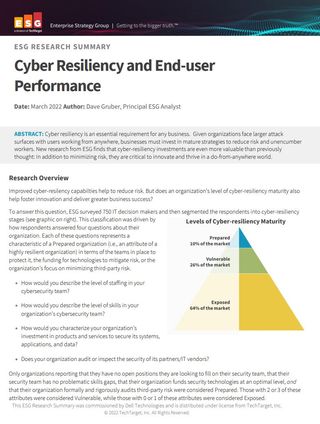Phishing attacks targeting US government have evolved in sophistication, Cofense reports
The scams are aimed at stealing federal employees' Microsoft 365 credentials

Phishing attacks targeting the US Departments of Labor, Commerce, or Transportation have evolved to become more convincing and evasive, Cofense Intelligence revealed.
The credential phishing campaigns, active since mid-2019, have been seen in environments protected by secure email gateways (SEGs), the company added.

Cyber resiliency and end-user performance
Reduce risk and deliver greater business success with cyber-resilience capabilities
The emails have developed over time to incorporate legitimate-looking logos, signature blocks, and consistent formatting, including more detailed instructions in PDF documents. Typically, the emails included bid requests for lucrative government projects that lured recipients to phishing pages that mimicked legitimate federal agency websites.
Cybersecurity firm INKY detailed one such incident in January 2022, when threat actors used PDF attachments with instructions for bidding on the US Department of Labor projects.
Adding to the trickery, threat actors have also incorporated longer domain names, such as “transportation[.]gov[.]bidprocure[.]secure[.]akjackpot[.]com” in an attempt to make the website address look legitimate when accessed from mobile browsers that cannot display full-length URLs.
Additionally, on the phishing page that entices visitors into entering their Microsoft Office 365 account credentials, the threat actors have now added a Captcha Challenge step to prevent bots from participating.
“The only place where the threat actors fall slightly behind is their spoofed pages can be out of date, which will likely go unnoticed by most victims,” stated Cofense in its report.
Get the ITPro. daily newsletter
Receive our latest news, industry updates, featured resources and more. Sign up today to receive our FREE report on AI cyber crime & security - newly updated for 2024.
“Given the advancements seen in each area of the phishing chain, it is likely the threat actors behind these campaigns will continue to innovate and improve upon their already believable campaigns,” added Cofense.




